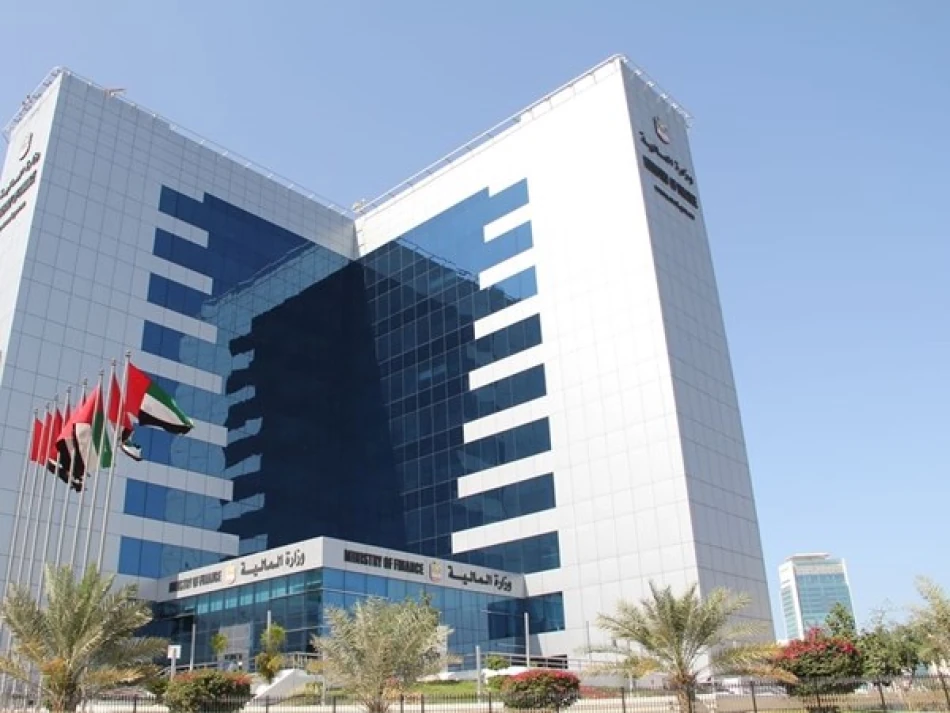
Revamp of Selective Tax on Sweetened Beverages: Unlocking Healthier Choices for Consumers
UAE Pioneers Progressive Sugar Tax Model to Combat Health Crisis and Drive Industry Innovation
The United Arab Emirates has announced a groundbreaking shift in its approach to taxing sugary beverages, moving from a flat-rate excise tax to a graduated volume-based model that directly correlates tax rates with sugar content. This policy innovation, set to take effect in early 2026, represents one of the most sophisticated fiscal health interventions in the Middle East and positions the UAE as a regional leader in using taxation as a public health tool.
How the New Tax Structure Works
Under the new system, the excise tax on sweetened beverages will be calculated based on sugar content per 100ml, with higher sugar concentrations triggering proportionally higher tax rates per liter. This marks a significant departure from the current uniform tax rates applied across all sweetened beverages, regardless of their sugar content.
The Ministry of Finance and Federal Tax Authority designed this mechanism to create direct financial incentives for manufacturers to reformulate their products with lower sugar content, while simultaneously making healthier options more competitively priced for consumers.
Strategic Timing and Industry Preparation
The announcement comes with a generous 18-month implementation timeline, allowing suppliers, importers, and manufacturers to adapt their operations. This preparation period enables companies to update internal systems, analyze product compositions, and modify their tax authority registrations to comply with the new requirements.
This extended runway demonstrates the UAE's commitment to business-friendly policy implementation, avoiding the market disruption that often accompanies sudden regulatory changes in other jurisdictions.
Regional Leadership in Health-Focused Taxation
The UAE's move builds on its existing excise tax framework, which already includes tobacco products and energy drinks, but represents a significant evolution in sophistication. Unlike Saudi Arabia's flat 50% tax on soft drinks or similar regional approaches, the UAE's graduated model offers a more nuanced tool that can drive industry behavior while maintaining consumer choice.
This policy aligns with the UAE's broader Vision 2071 goals and positions the country ahead of global trends in behavioral taxation. The approach mirrors successful models in countries like the UK, where sugar taxes have led to significant product reformulation across the beverage industry.
Market Implications and Industry Response
For beverage manufacturers, this policy creates a clear competitive advantage for companies that can successfully reduce sugar content without compromising taste. Major international brands operating in the UAE will likely accelerate their reformulation efforts, potentially using the Emirates as a testing ground for lower-sugar variants that could later be rolled out globally.
The policy also opens opportunities for artificial sweetener suppliers and food technology companies specializing in sugar reduction solutions. Local manufacturers may find themselves with a competitive edge if they can adapt more quickly than international competitors.
Public Health and Economic Strategy
The UAE faces rising rates of diabetes and obesity, with the country ranking among the top globally for Type 2 diabetes prevalence. This tax structure represents a data-driven approach to addressing these challenges through market mechanisms rather than outright bans or restrictions.
The Ministry of Finance emphasized that this model reflects the UAE's commitment to using flexible fiscal and legislative tools to support healthy lifestyles, marking a shift toward more sophisticated policy instruments that balance public health goals with economic considerations.
Implementation and Future Outlook
The success of this initiative will largely depend on the specific tax rates applied to different sugar concentration levels, details that will be announced as the 2026 implementation date approaches. The government has committed to comprehensive awareness campaigns and continued coordination with health authorities to ensure smooth implementation.
This policy innovation positions the UAE as a potential model for other Gulf Cooperation Council countries, with the Ministry of Finance explicitly noting the initiative's role in supporting regional tax policy integration. As global attention increasingly focuses on the relationship between fiscal policy and public health outcomes, the UAE's graduated sugar tax model may well become a template for other nations seeking to address similar health challenges through market-based solutions.
Most Viewed News

 Layla Al Mansoori
Layla Al Mansoori






